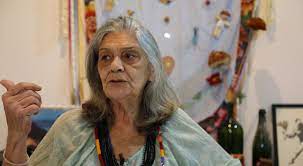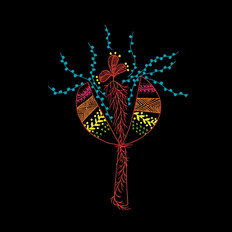
Indígenas.br - Indigenous Music Festival - Schedule 12/09
Day 12/09 – Sunday – 7:00pm
Documentary show
— Nn Ga vī: a kanhgág resumption in motion — Direction: Nyg Kuitá Kaingang and Paola Gibram
— Screening of the episode I am modern, I am a musician, from the unprecedented series I am modern, I am Indian, in a unique display. Director: Carlos Magalhães
Show
— Brisa Flow — Corner to weave memory*
Chat
— The audiovisual in dialogue with contemporary indigenous worlds — Carlos Magalhães, Renata Tupinambá and Dedé Maia (screenwriters). Mediation: Idjahure Kadiwel.
Nn Ga vī: a kanhgág resumption on the move
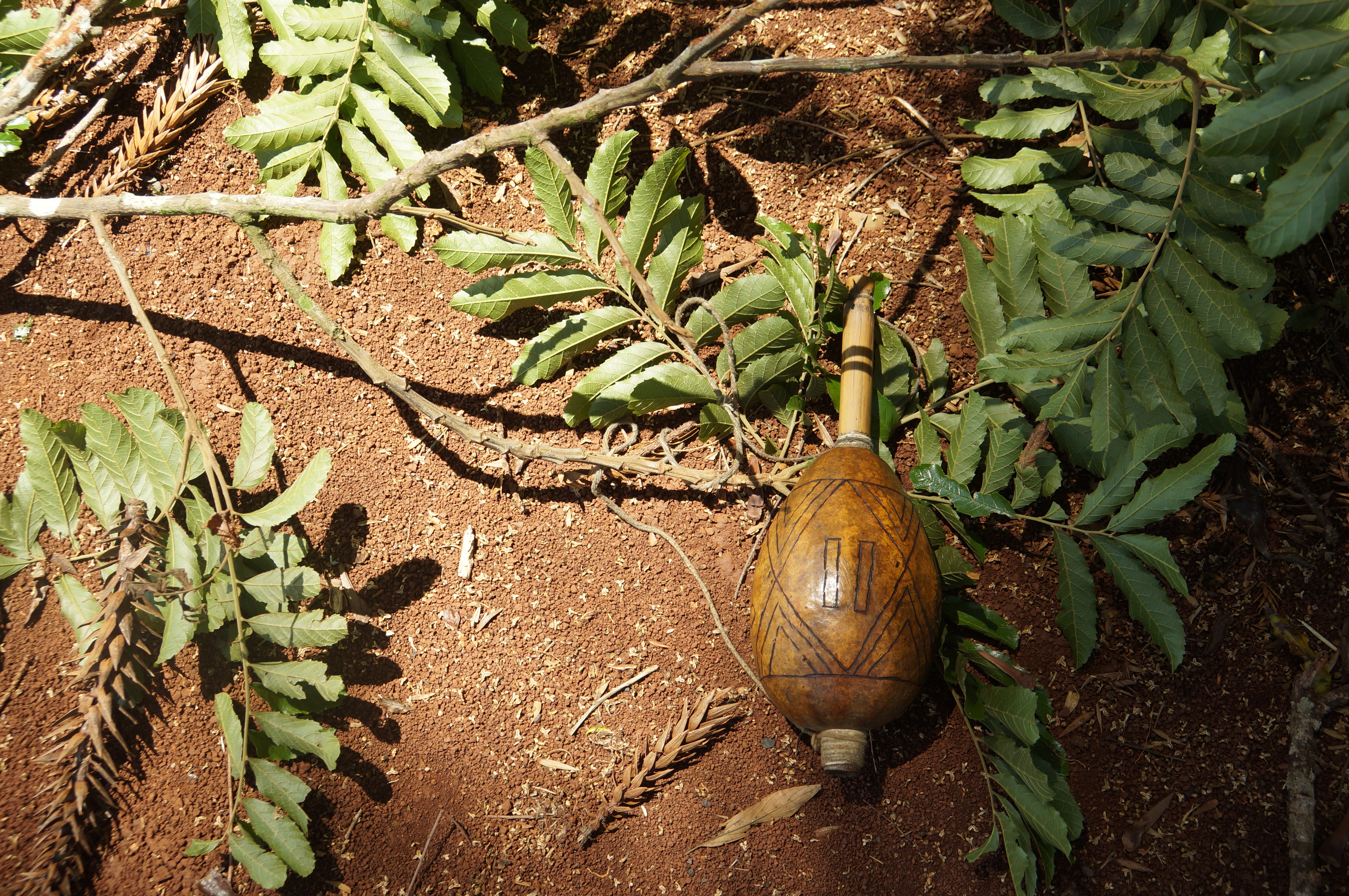
This documentary, co-directed by indigenous researcher Nyg Kuitá Kaingang and anthropologist Paola Gibram, presents reflections and performances by members of the Kaingang Nn Ga youth collective, from the Apucaraninha Indigenous Land, located in the north of the state of Paraná, in the southern region of Brazil. The Kaingang voices — kanhgág v— are presented in this documentary through the speeches of some of the members and people linked to the collective, as well as through songs — considered one of the main ways in which they present their ancestors [yahweh] and bring their jagré [guiding spirits] closer to themselves. The film shows the strong connection of the Nn Ga movement with the indigenous school, exploring the ways in which contemporary Kaingang reflect on the cultural and existential usurpations arising from the many years of contact with the fog [white, non-indigenous] and the urgent need to resume the practices and Kanhgág knowledge that have been banned or violated to them — which they consider they were “asleep” and are now being “awake”. The film shows scenes from the Pãri Festival, one of the main resumption performed by the collective. During the five-day feast, the Kaingang are camped on the edge of the Apucaraninha River, during which they prepare the Pãri, an ancestral Kaingang fishing trap made of braided taquara. The documentary also shows the participation of Nn Ga in indigenous political mobilization events, one of the main aspects of action and formation of this collective.
Data sheet: color, 28min, 2019.
Direction: Nyg Kuita Kaingang and Paola Andrade Gibram.
Cameras: Nyg Kuita Kaingang, Paola Andrade Gibram and Anilton Ayn’My Lourenço.
Sound: Paola Andrade Gibram.
Assembly: Nyg Kuita Kaingang, Paola Andrade Gibram and Ricardo Dionisio.
Transcriptions for Kaingang: Goj Téj Kuitá.
Translations: Nyg Kuita Kaingang and Goj Téj Kuitá.
Production: Image and Sound Laboratory in Anthropology (LISA-USP).
Support: FAPESP, CESta and PET.
Nen Ga Collective
The indigenous researcher Nyg Kuitá Kaingang is a member of the Kaingang Nn Ga youth collective of the Apucaraninha Indigenous Land, located in the north of the state of Paraná, in the southern region of Brazil. Nyg is a collaborator of the Indigenous Youth Network (REJUIND), acting as a focal point in the South Region, focusing on national and international spaces, along with other collaborators. He is a member of the Articulation of the Indigenous Peoples of Brazil (APIB) and was part of the organizing committee of the First March of Indigenous Women in Brasília, 2019. She also works as an indigenous researcher in the Tutorial Education Program (PET Indigenous Coast UFPR).
Paola Gibram
Anthropologist and musician (instrumentalist and composer). He has been developing research and projects with indigenous peoples for 15 years, working more directly with the Kaingang from Southern Brazil. Graduated in Social Sciences and a Master’s Degree in Social Anthropology from the Federal University of Santa Catarina and currently holds a PhD student in Social Anthropology from the University of São Paulo. As a researcher, she is affiliated with the Amerindian Studies Center (CESTA/USP) and the Center for Studies in Arts, Culture and Society in Latin America and the Caribbean (MUSA), coordinated by Professor Rafael José de Menezes Bastos. She is the author of the book “Penhkár: politics, kinship and other Kaingang stories” (Appris/Instituto Brasil Plural) and articles published in academic journals. In recent years, he has developed communication advisory work and project development for indigenous collectives in the South region, especially the Kaingang do Paraná. He recently produced a documentary and several articles co-authored with indigenous researchers. The themes of his research focus on Amerindian arts and policies (with an emphasis on verbal and musical arts), indigenous history, and indigenous ethnology. As a musician, he conducts performances and research in the context of popular Brazilian musicalities, having already carried out tours in Spain, Argentina and several Brazilian states with his groups.
Episode 'I'm modern, I'm a musician', from the unprecedented series 'I'm modern, I'm an Indian'
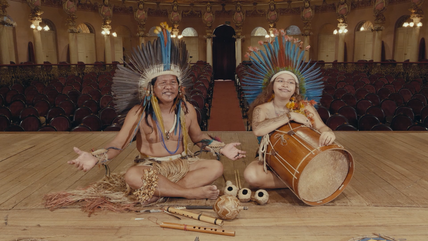
Rap is already one of the most used forms of indigenous communication. There are several groups and artists that serve this musical style. Kunumi MC is one of the main voices. In the intimacy of your village, we feel the perfect beat. Manaus is the city with the most indigenous people living. In his beautiful theater we find artist José Tikuna. A pioneer in street performances in the city, which is now being recognized and performs in new venues. In the other part we go to Tribes Park, a place of great struggle and conflict where artists of the resistance arise. The Kokama and Tikuna people sing their ancestralities.
Indigenous counseling: Dedê Maia, Renata Machado Tupinambá
Screenplay: Dedê Maia, Carlos Eduardo Magalhães
Director: Carlos Eduardo Magalhães
Co-director: Priscilla Tapajowara
Producer: Tiago Tambelli, Luana Korossy, Virginia Barbosa Gandres, Nina Lemos, Vanessa Lias
Screenplay: Renata Machado Tupinambá, Inês Figueiró
Direction of photography: Priscilla Tapajowara, Wewito Pyäko Ashaninka, Carlos Eduardo Magalhães
Art Director: Denilson Baniwa
Music Notice: Radio Yandê
Direct Sound: Caio Tupã
Publisher: José Roberto Oliveira
Finishing: Videocubo
Channel: CineBrasil TV
Breeze Flow — Corner to weave memories
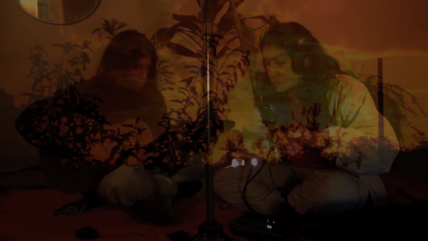
Brisa Flow sings Rap as an oral tool against the epistemicide and genocide of Abya Yala’s indigenous pueblos.
Edition: Ian Wapichana
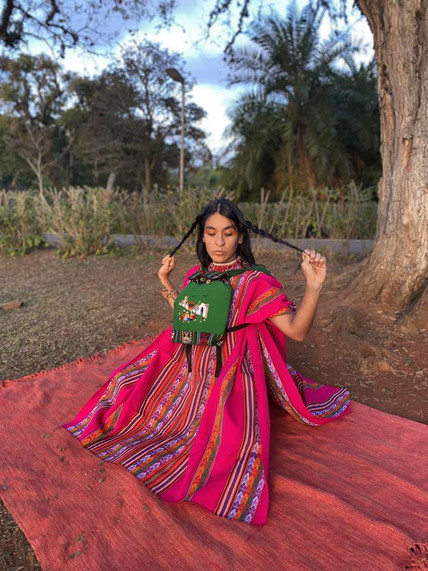
Flow Breeze
Brisa De La Cordillera, of Mapuche origin, is a miner and daughter of Chilean artists. Singer, musician, songwriter, poet, performer and music producer. Winner of the Olga Inspiring Women Award 2018. He began his artistic process in Belo Horizonte and mixes the Latin Levada with rap, organic sounds, indigenous, electronic and neo/soul music. His songs revolve around the resistance of urban indigenous women, female empowerment, social inequality in Latin America and healing for the potential of affection.
Chat - The audiovisual in dialogue with contemporary indigenous worlds
Participants: Carlos Magalhães, Renata Tupinambá and Dedé Maia (screenwriters)
Mediation: Magda Pucci
Brazilian society, in general, has a stereotypical view of indigenous peoples. The romanticized image in force on social networks and media is constant that reinforces the idea that in order to be truly indigenous it is necessary to live in the forest, be “pure” and not have access to technology. Indigenous people in an urban context suffer prejudice because many people believe that living in the city it has lost its roots. But being an Indian is not a matter of feather headdress, annatto and bow and arrow, something apparent and evident, but rather a matter of “state of mind”. It is on this subject that this conversation wheel will speak with the presence of the creators of the TV series “I am an Indian, I am modern”.
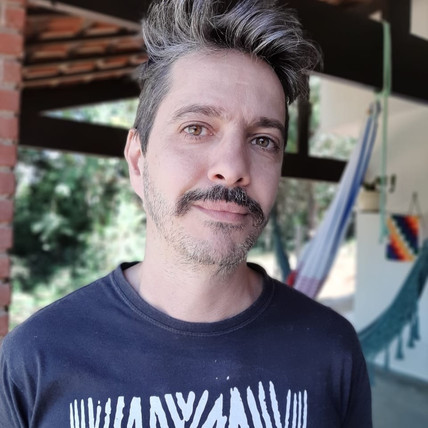
Carlos Eduardo Magalhaes
Film director, highlight the feature film Ara Pyau Primavera Guarani, 76 minutes, winner of the Rigoberta Menchú Prize at the 28th Présence Autochtone 2018 Festival in Montreal, Canada. He is the author and director of the series Sou Moderno Sou Índio, Cinebrasiltv, 2021. It provides advice for projects in Brazil and Latin America. He has been a project advisor at the BOLIVIA LAB international laboratory since 2015, at ACAMPADOC since 2016 in Panama and at the Arica Nativa Film Festival, in Chile, since 2020. Founding partner of Laranjeiras Produções.
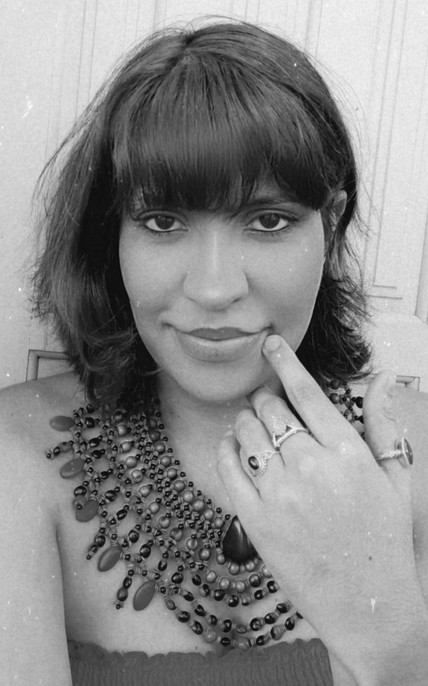
Renata Tupinaba
Journalist, producer, poet, consultant, curator, screenwriter and visual artist. It works and researches communication aimed at decolonizing the media, strengthening indigenous narratives in cinema, TV, literature, audio and music.
It has been working since 2006 with dissemination of indigenous cultures and communication. She is Co-founder of Radio Yandê, Brazil’s first indigenous radio web. Collaborator of Indigenous Visibility. He is a co-writer of the series Sou Moderno, I’m an Indian of Cine Brasil TV. He was an assistant in production and communication at the Echoes Observatory of musician Marcelo Yuka. Creator of the Originárias podcast, first in Brazil for interviews with indigenous artists and musicians, which is part of the PodSim female Podcast hub. He currently also works in the production of indigenous artists and musicians.
Dedé Maia
Author of the project “Center for Documentation and Indigenous Research of the CPI-AC.”.
Today
